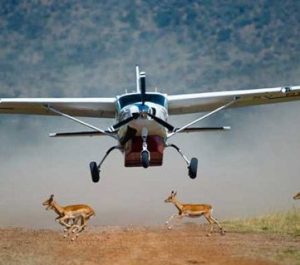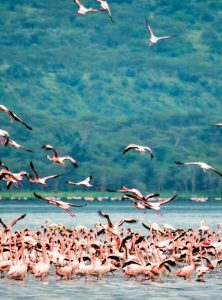Essential Rules for Responsible Travel
Safaris in Uganda and Rwanda offer some of the most unforgettable wildlife encounters in Africa—from tracking endangered mountain gorillas in misty volcanic slopes to watching lions hunt across savannah plains. However, such experiences come with clear rules and cultural expectations to protect wildlife, preserve the environment, and respect local traditions. Knowing what not to do can make the difference between a respectful, safe, and successful safari, and one that risks harming animals, the environment, or community relationships. Don’ts on a Uganda and Rwanda Safari
What Should You Avoid Doing Around Wildlife in Uganda and Rwanda?
One of the golden rules of any safari is to respect wildlife at all times. Avoid making loud noises, sudden movements, or attempting to attract an animal’s attention. Such actions can startle or stress animals, especially species like elephants, buffaloes, or gorillas, which may respond aggressively if threatened.
Never feed wild animals, no matter how harmless the gesture may seem. Feeding wildlife disrupts their natural foraging behavior, increases dependence on humans, and can lead to dangerous interactions. In both Uganda and Rwanda, park authorities strictly prohibit feeding animals, and violations can result in fines or removal from the park.
Maintaining a safe distance is crucial. For gorillas and chimpanzees, this is usually at least seven meters to prevent disease transmission and minimize stress to the animals. Even in vehicle-based safaris, keeping distance ensures that animals remain in their natural behaviors without associating vehicles or humans with danger or food.
What Gorilla and Chimpanzee Trekking Rules Must You Not Break?
When trekking mountain gorillas in Rwanda’s Volcanoes National Park or Uganda’s Bwindi Impenetrable Forest and Mgahinga Gorilla National Park, certain rules are non-negotiable. Do not approach the gorillas closer than the recommended distance, and never attempt to touch them, even if they move towards you. Physical contact risks transmitting human illnesses, which can be fatal to great apes.
Avoid trekking if you are sick with flu, cold, or any contagious disease. Park authorities will deny access to anyone showing symptoms to protect the gorillas’ health. Additionally, refrain from eating, drinking, or smoking in the gorillas’ presence, as food smells and litter can cause problems.
For chimpanzee tracking in Uganda’s Kibale Forest or Nyungwe Forest in Rwanda, follow similar guidelines—keep noise levels low, avoid imitating their calls, and never leave the group to pursue individual sightings. Trekking regulations exist to balance tourism with long-term species protection.
Why Should You Always Follow Park Rules and Ranger Instructions?
Ignoring park rules or failing to follow ranger instructions is one of the most dangerous mistakes visitors can make. Rangers and guides are trained to keep both visitors and wildlife safe, using knowledge of animal behavior and environmental hazards.
Do not wander off designated trails or drive off marked tracks. Off-road movement can damage vegetation, disturb nesting grounds, and stress animals. It also increases the risk of getting lost or encountering aggressive wildlife without protection.
If a ranger signals you to stay still, lower your voice, or retreat, follow instructions immediately. Disobedience not only risks your safety but can also lead to penalties or being banned from future treks.
What Cultural Sensitivities Should You Not Ignore in Uganda and Rwanda?
Both Uganda and Rwanda have rich, diverse cultures with traditions that visitors must respect. Avoid wearing revealing clothing, particularly when visiting rural communities or religious sites. While safari attire is generally casual, modest dress helps maintain cultural harmony and shows respect for local customs.
Never take photographs of people without their permission. In some communities, photographing individuals without consent is considered disrespectful. When in doubt, ask first—often, people will happily pose when asked politely.
Avoid making culturally insensitive jokes or gestures. Learn a few basic greetings in local languages like Kinyarwanda (Rwanda) or Luganda (Uganda), as this shows respect and appreciation for the culture.
Why Is Flash Photography Not Allowed on Safari?
Flash photography can startle animals and alter their natural behavior, especially for nocturnal or sensitive species. For gorilla and chimpanzee trekking, flash is strictly prohibited. The sudden burst of light can distress primates, cause them to retreat, or even trigger defensive behaviors.
When photographing wildlife in open savannah areas like Uganda’s Queen Elizabeth National Park or Rwanda’s Akagera National Park, rely on natural light or use appropriate camera settings to capture clear images without flash. If you must use artificial light for night drives, follow the guide’s instructions and use only approved red or filtered lights to minimize disturbance. Don’ts on a Uganda and Rwanda Safari
Why Should You Never Litter or Damage the Environment?
Littering in national parks and protected areas is not only illegal but also harmful to wildlife and the ecosystem. Animals may ingest plastic or other waste, leading to serious health problems or death.
Avoid picking plants, collecting rocks, or taking any natural object from the park. Removing even small items can disrupt ecosystems and reduce the park’s natural beauty for other visitors. Always carry a small bag for your waste until you reach proper disposal facilities. Don’ts on a Uganda and Rwanda Safari
Uganda and Rwanda are committed to eco-friendly tourism, and visitors play a vital role in preserving these environments.
What Items Should You Not Bring on a Uganda or Rwanda Safari?
Both countries have banned certain items to protect the environment. Single-use plastic bags are prohibited in Rwanda and restricted in many areas of Uganda. Bringing them into the country can result in fines or confiscation at the border.
Avoid carrying drones without proper authorization. In most national parks, drones are prohibited to protect wildlife and visitor privacy.
Check airline baggage rules and safari operator guidelines for additional restrictions. Overpacking not only makes travel cumbersome but can also cause logistical issues on small safari vehicles and charter flights.
Why Should You Not Expect Unrestricted Internet or Mobile Service?
While urban centers in Uganda and Rwanda have reliable internet and mobile coverage, many safari destinations are in remote regions where connectivity is limited or non-existent.
Do not plan to stream videos, hold online meetings, or upload large files while deep in the wilderness. Instead, prepare for digital disconnection and focus on the safari experience. This also helps conserve battery life, which can be crucial in areas with limited charging facilities. Don’ts on a Uganda and Rwanda Safari
What Health and Safety Mistakes Should You Avoid on Safari?
Never neglect health precautions before and during your safari. Both Uganda and Rwanda require proof of yellow fever vaccination for entry. Malaria prevention is strongly advised, so do not skip prescribed prophylaxis.
Avoid drinking untreated water and always use bottled or purified water. Do not forget to carry insect repellent, sunscreen, and a small first-aid kit. On game drives and treks, do not ignore hydration needs—dehydration can happen quickly in tropical climates, even when temperatures feel moderate.
Finally, do not attempt risky interactions with wildlife for photographs or social media content. Such actions endanger both you and the animals.
Conclusion
Uganda and Rwanda offer safaris that are as breathtaking as they are delicate to manage. By knowing what not to do from avoiding close contact with wildlife to respecting cultural traditions—you help protect endangered species, maintain natural habitats, and support positive relationships with local communities. Following these “don’ts” ensures that your safari remains safe, ethical, and memorable for all the right reasons. Don’ts on a Uganda and Rwanda Safari




